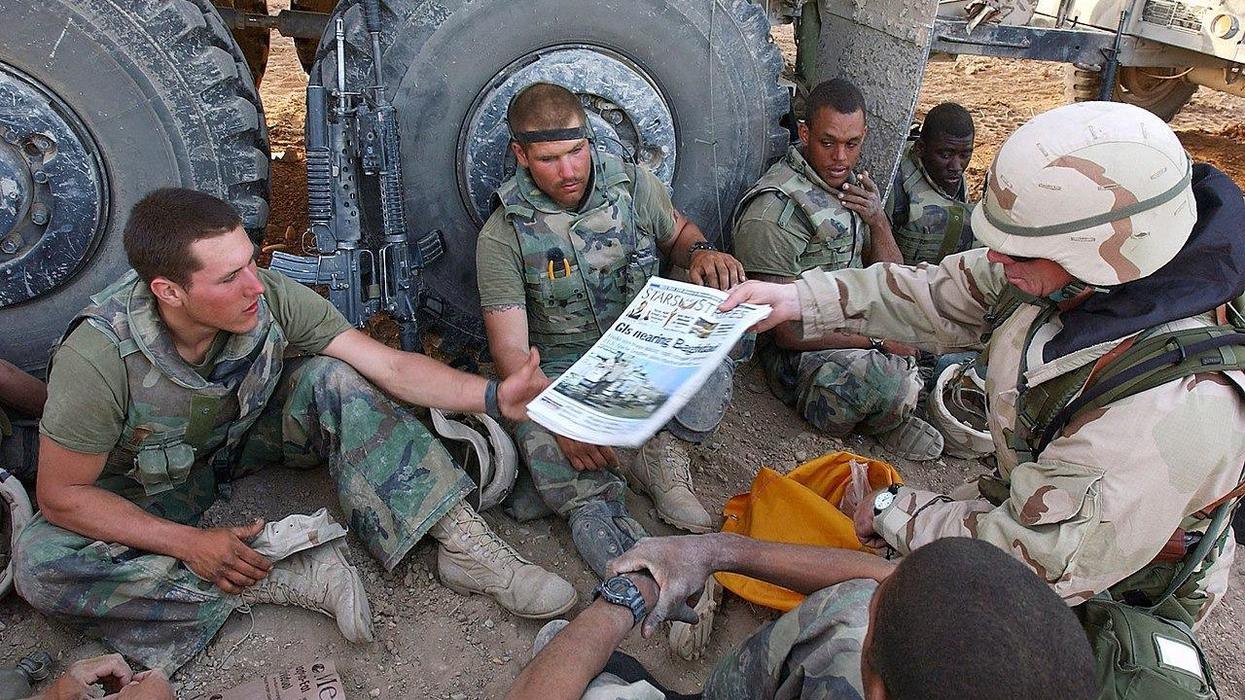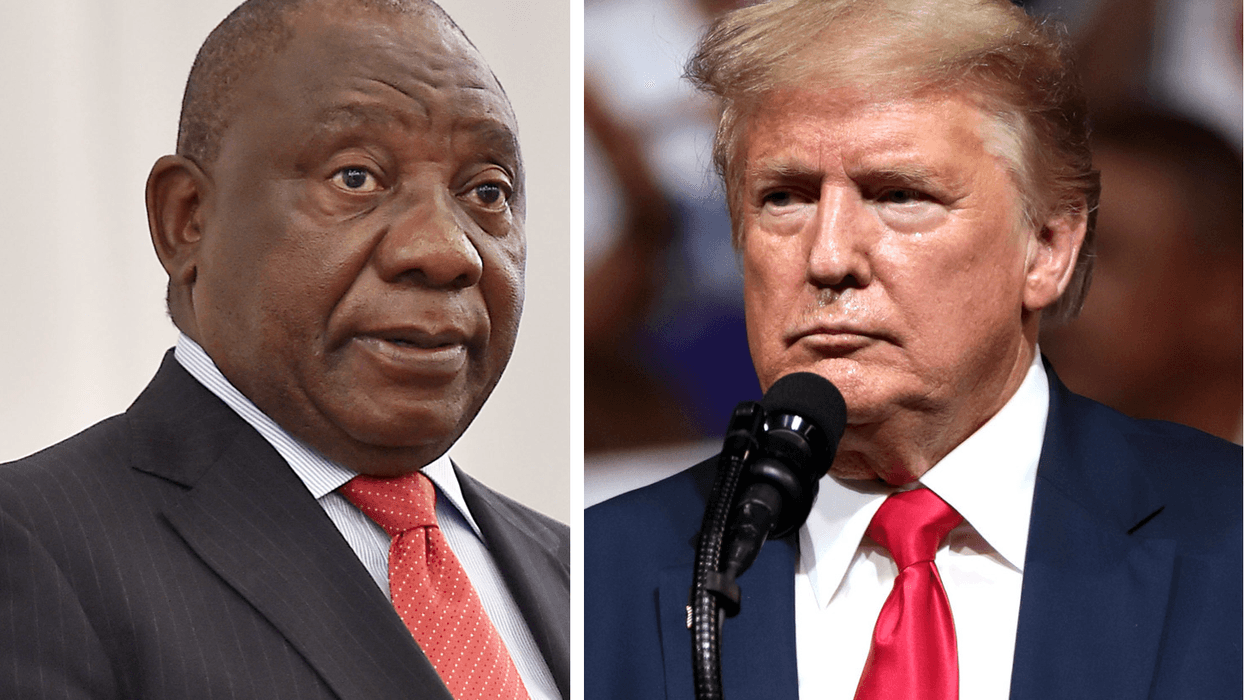Amid the growing debate over the U.S. role in the world after the end of its “longest war” in Afghanistan, Americans want more diplomatic engagement and less military intervention in their nation’s foreign policy, according to the findings of a new poll released by the Eurasia Group Foundation.
Those preferences were particularly pronounced among younger respondents, according to the survey which also found that twice as many Americans want to decrease the nearly $800 billion defense budget (39 percent) than those who favor increasing it (16 percent).
The survey, suggestively entitled “Inflection Point: Americans’ Foreign Policy Views After Afghanistan,” was carried out between Aug 27 and September 1, the last days of Washington’s rather chaotic evacuation of Americans and their local Afghan allies from Kabul. The poll’s organizers noted that the coincidence may have influenced how respondents reacted to the many questions that were posed to them.
Nonetheless, answers throughout the survey displayed an internal consistency that suggests more deeply held beliefs that Washington should exercise more restraint in its relations with the outside world, particularly with respect to its use or deployment of military force abroad and its ambitions to transform foreign societies, and instead rely more on the United Nations and other multilateral institutions.
Given a choice, two-and-a-half times as many respondents (58 percent) said Washington should increase participation in international organizations, trade, and treaties as those who opted for the alternative of reducing such engagement (22 percent). The majority indicated their preference for dealing with challenges, such as climate change, human rights, and migration, through multilateral institutions, as opposed to taking unilateral action.
Respondents were also asked to choose whether they preferred to reduce or at least maintain, if not increase, the roughly 200,000 U.S. active-duty troops who are stationed or deployed Europe, Northeast Asia, and the Greater Middle East under existing treaties or foreign commitments. A plurality of 42 percent preferred to reduce the U.S. troops presence in those regions, while 32 percent favored maintaining or increasing those commitments.
Based on the answers to these last two questions, the survey’s organizers placed respondents into four categories: “Traditional Internationalists” who support both working with other countries to address global issues while maintaining Washington’s status as much of the world’s ultimate security guarantor; “Global Ambassadors” who favor greater diplomatic efforts and reducing Washington’s military footprint abroad; “Hard Power Primacists” who prefer maintaining Washington’s military dominance and are skeptical of international institutions; and “Genuine Isolationists” who oppose international engagement in general.
It found that a plurality of respondents fell into the “Global Ambassadors” category (39 percent); then “Traditional Internationalists” made up about 33 percent; while “Genuine Isolationists” (17.5 percent), and “Hard Power Primacists” (10.5 percent) accounted for the remainder. Together, the two categories that oppose U.S. “military primacy” – the “Ambassadors” and “Isolationists” make up a majority of about 57 percent of all respondents, according to the report accompanying the survey results.
Still, a 40-percent plurality said they believed the defense budget should be maintained at current levels, while 16 percent favored an increase. Nearly 39 percent said the defense budget should be reduced. Most of the respondents who chose that option said the money saved should be directed to funding domestic priorities.
Answers to questions about dealing with global adversaries reinforced the general preference for diplomacy over military action, according to the survey. Nearly two thirds of respondents (63 percent) agreed with the statement that Washington “should negotiate directly with adversaries to try to avoid military confrontation, even if those adversaries are human rights abusers, dictators, or home to terrorist organizations.” Thirty-seven percent of respondents, on the other hand, said the United States “should not negotiate directly” with such adversaries.
The same percentage breakdown applied to a question about whether Washington should return to the 2015 agreement to curb Iran’s nuclear program, with 80 percent of self-identified Democrats favoring return, and 59 percent of self-identified Republicans opposing that position.
As in the previous three years, the survey found little consensus on how Washington should deal with Russia and China. Asked whether Washington should take military action to expel Russian troops from its Baltic NATO allies, opinions were roughly evenly split. Asked whether Washington should increase or decrease its military presence in Asia, respondents also divided down the middle. A 42-percent plurality said the U.S. military should defend Taiwan if it were attacked by China, while only 16 percent disagreed. Nearly 42 percent, however, said they weren’t sure.
The overall preference for more diplomacy and a less militarized and interventionist foreign policy was particularly and consistently pronounced among the youngest group of respondents (18-29 years old). Conversely, the most hawkish generational group was also the oldest (over 60). Most of the youngest group (57 percent) expressed skepticism about the desirability and long-term effectiveness of drone strikes, while a whopping 85 percent of the oldest group viewed their use as positive.
Fifty-five percent of the youngest group of respondents favored reducing the defense budget in contrast to the 31.5 percent of the oldest group of respondents who agreed. Sixty percent of the latter group support increasing the U.S. military presence in the Pacific “to check China’s growing influence.” Sixty-three percent of the youngest group called for reducing the U.S. military presence in the region “while transitioning regional allies toward defending themselves….”
Remarkably, nearly three times as many of the youngest respondents (60 percent) rejected the notion that the United States is an “exceptional nation” as the oldest group (22 percent), according to the survey results.
However, the survey found general accord among all ages about what lessons could be drawn from Washington’s 20-year intervention in Afghanistan. Strong majorities ranging from 55 percent to 70 percent (of the over 60 group) agreeing either that the “U.S. military should not be involved in “the business of national-building and solving other countries’ political problems” or “America’s military is best deployed when vital national interests are threatened,” as opposed to affirming statements that the “U.S. military has an obligation to fight until its adversary is fully defeated” or “maintaining American credibility is paramount.”
















